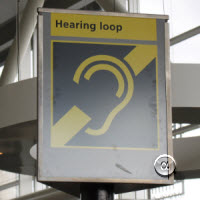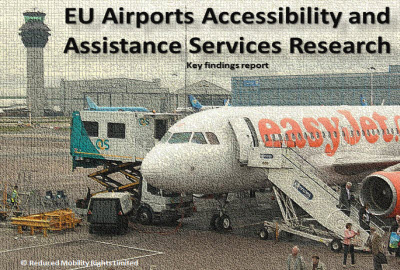Most EU Airports Not Accessible for Deaf People, Research Finds
 Poor or nonexistent support for deaf people is one of the key critical issues the latest European airports accessibility research found.
Poor or nonexistent support for deaf people is one of the key critical issues the latest European airports accessibility research found.
Deafness is the most widespread invisible impairment, affecting over 10 million people in the UK alone, according to statistics published by Action on Hearing Loss (formerly RNID). Approximately 673,000 people in the United Kingdom are severely or profoundly deaf.
Leading advocate of access to aviation Reduced Mobility Rights published a study on accessibility and assistance services at airports across the European Union. The research sums findings of the audit of 18 airports, seven of which among the 10 busiest in Europe by total passenger traffic.
The organization’s innovative audit methodology was crucial to identify critical issues with accessibility and assistance services.
The study shows that most European airports do not provide enough support to hearing impaired passengers. Absence of induction loops at key areas like security check points, passport control booths, and check-in counters, poor and confusing signage, older flight displays often lacking critical information, unavailability of text-phones and captioned videos, lack of visual announcements are factors contributing to unpleasant airport journey for deaf people.
induction loops at key areas like security check points, passport control booths, and check-in counters, poor and confusing signage, older flight displays often lacking critical information, unavailability of text-phones and captioned videos, lack of visual announcements are factors contributing to unpleasant airport journey for deaf people.
The research unearthed more critical issues related to compliance with European Regulation 1107/2006, airports building accessibility, and staff training.
The study’s findings are the cornerstone of upcoming best practice recommendations, a tool to transfer the knowledge developed through research to the delivery of service and development of policy.










